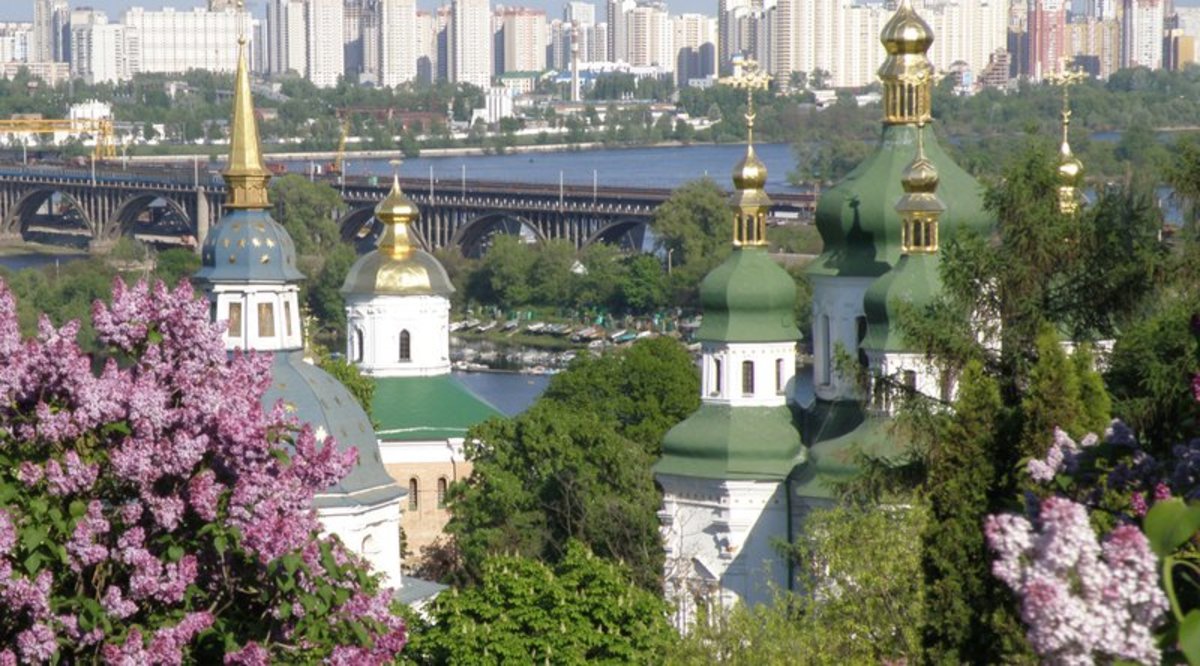
Ukraine is one of these countries where people require no explanation about the value of hard money. As war in the east of the post-Soviet nation helped put its economy into a recession, the Ukrainian national currency — the hryvnia — lost some 70 percent of its value over the past two years. Perhaps that’s why demand for bitcoin there has increased significantly.
And also why the Blockchain & Bitcoin Conference in Kiev on September 23 attracted a large and engaged audience.
The Bitcoin Alternative
Early in the morning, at the start of the conference, Cubits COO Max Krupyshev addressed a packed Rookie Hall, one of the three spacious conference rooms. Going over the basics of blocks, Bitcoin-addresses and proof-of-work in his native Ukrainian, Krupyshev faced a crowd full of questions and requests for details.
“The audience engagement at this conference is really impressive,” Krupyshev told Bitcoin Magazine after his talk. “People here are really curious about Bitcoin and blockchain technology. They’re not passive or bored listeners. [They] actually want to know how it works and what it does, asking questions accordingly.”
Krupyshev believes Ukrainians may be looking at technologies like Bitcoin, blockchain and other distributed ledgers as a potential alternative to their current economic situation.
“Ukraine has fallen on tough times, economically and financially. Many people may be considering Bitcoin as a potential way out, maybe as a hedge against inflation, but perhaps also to hide money, or to send money abroad, or as an investment — or as a job opportunity. Wages in this country are low. Among the few people making good money are programmers. If you live here and learn to understand this upcoming technology, it may present an opportunity to improve your style of life.”
The Conference
The Blockchain & Bitcoin Conference in Kiev is one of a series of four in Eastern Europe in 2016. Conference organizer Smile Expo also hosts events in Prague, St. Petersburg and Moscow, with the next edition in the Russian capital on November 10th.
Last Friday’s conference was the third annual edition in Kiev. And as Eastern European interest in Bitcoin and blockchain technology keeps on growing, so does the conference in Ukraine.
Pavel Likhomanov is coordinator of the Blockchain & Bitcoin Conference. Speaking to Bitcoin Magazine, Likhomanov explained:
“Bitcoin, blockchain and fintech is gaining popularity in Eastern Europe in general, and in Ukraine in particular. We can see this increasing interest at the conference as well. Last year we had some 400 visitors; now we’re up to almost 600.”
The conference in Kiev is mostly targeted at locals, with most speakers addressing their audience in Ukrainian. English speakers are few and far between, and have translators to help them get their message out to the attendees in Kiev.
Topics in the conference rooms, meanwhile, are as diverse as you’ll find them in this industry. They include advanced explanations of the proposed Casper proof-of-stake consensus mechanism for Ethereum; the value proposition of bitcoin as part of an investment portfolio; and the importance of cold storage.
Likhomanov explained:
“Visitors of the conference come for different reasons, and we aim to satisfy all interests. As such, the topics discussed here are diverse as well. This is why we have three distinct tracks: the Professional Hall, targeted at business professionals; the Developer Hall that covers the really technical side of things; and the Rookie Hall, where new people can come and learn about these technologies.”
Ukraine’s International Contribution
Despite the growing interest, most bitcoiners will probably not identify Ukraine as an international powerhouse of the industry.
Notably absent from the conference in Kiev is Ghash.IO and its mother company CEX.IO. Once Bitcoin’s biggest mining pool and an industry leader, this business with Ukrainian roots is today incorporated in the United Kingdom.
And Krupyshev, while the original founder of the Ukrainian Bitcoin Foundation, moved to Berlin to work for Cubits over a year ago. Speaking to Bitcoin Magazine, he explained that his departure may be a bit of a trend.
“Ukrainians are clever. There are plenty of talented developers with coding skills and entrepreneurs with good ideas,” he said. “But unfortunately, Ukrainian venture capitalists still live in the old world. While Twitter is valued at one billion US dollars, investors here still want to see tangible products. It’s crazy. On top of that, the legal situation is murky. Bitcoin is not illegal...but it’s not necessarily legal either. No one really knows. This uncertainty and lack of investment is driving Ukrainian developers and companies abroad.”
Indeed, several of the Ukrainian speakers and sponsors in Kiev do represent familiar names in the Bitcoin and blockchain industry, like Ambisafe, ether.camp or Bitmain Warranty.
“We have a bigger footprint in the industry than, I think, many people probably realize,” said Krupyshev. “But the real activity is hidden, working for or even disguised as foreign outfits. If you look more closely you’ll find there’s a lot of Ukrainian developers and executives working abroad — at least officially.”










